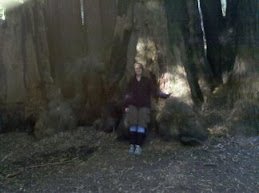At the BEC membership meeting last night, several people used the phrase “Don’t’ throw the baby out with the bathwater.” This morning I was reviewing all of the many stories and opinions shared and I realize that babies and bathwater is a very appropriate metaphor in this case. Afterall, isn’t it the recognition of water as a precious and limited resource that has us all so concerned about BEC and advocacy?
There seems to be an endless, renewable supply of water here in Northern California. Even in dry years it still rains and snows and the creeks and rivers don’t run dry. Well, mostly they don’t run dry. As a community we are slowly coming to realize that water is not limitless, and yet the majority still use sprinklers to water large lawns (and the sidewalks, more often than not), take long showers, wash our cars in our driveways, all without much thought to how we might better conserve this resource. Nor do the majority think about just how easily we might lose this easy, mostly free access to a valuable necessity. Without water, life is not possible.
Babies are pretty important too. They are the means by which we perpetuate the species and they are pretty darned cute. Although perhaps a little less cute after being up all night screaming. Still, we don’t throw them out when they scream because babies need us to care for them or they would not be able to survive. We can’t expect babies to feed themselves or pay the bills. It is not reasonable to expect babies to show respect and empathy for their parents’ need for sleep by limiting their crying to daylight hours only. However, we do expect babies to grow and learn.
Last night I heard seventeen years worth of talented, committed, passionate former board members, staff, and volunteers speak. The story was pretty much the same throughout those seventeen years: Each started out excited by the goal of protecting our environment and making BEC the best organization possible to achieve that end. Each person worked very hard at helping Barbara, and each found Barbara turning her formidable, aggressive advocacy skills on them. BEC has had seventeen years of repeatedly draining the organization of great workers and refilling with new great workers in what seems to be an endless cycle.
Water is a valuable and limited commodity. The consequences of our actions, of our thoughtless use of water as an endless, renewable resource, have led to the draining of all of California’s aquifers except for the one we all live above—the Tuscan Aquifer. Clean, plentiful water is an inextricable part of a healthy ecosystem, of which our human community and economy are an interconnected part. When one part is sick or abused, that sickness or abuse ripples out to affect the whole.
Human creations like organizations function in very much the same way. We are all part of the ecosystem—the office workers, board members, and star advocates alike. The system only functions well when the whole works together, each doing their part to create a larger, healthier whole. Both water and babies are important and neither should be discarded lightly. I think the current BEC board is no different than the many past BEC boards in valuing both, and I do not think they made this decision quickly or lightly.
There seems to be an endless, renewable supply of water here in Northern California. Even in dry years it still rains and snows and the creeks and rivers don’t run dry. Well, mostly they don’t run dry. As a community we are slowly coming to realize that water is not limitless, and yet the majority still use sprinklers to water large lawns (and the sidewalks, more often than not), take long showers, wash our cars in our driveways, all without much thought to how we might better conserve this resource. Nor do the majority think about just how easily we might lose this easy, mostly free access to a valuable necessity. Without water, life is not possible.
Babies are pretty important too. They are the means by which we perpetuate the species and they are pretty darned cute. Although perhaps a little less cute after being up all night screaming. Still, we don’t throw them out when they scream because babies need us to care for them or they would not be able to survive. We can’t expect babies to feed themselves or pay the bills. It is not reasonable to expect babies to show respect and empathy for their parents’ need for sleep by limiting their crying to daylight hours only. However, we do expect babies to grow and learn.
Last night I heard seventeen years worth of talented, committed, passionate former board members, staff, and volunteers speak. The story was pretty much the same throughout those seventeen years: Each started out excited by the goal of protecting our environment and making BEC the best organization possible to achieve that end. Each person worked very hard at helping Barbara, and each found Barbara turning her formidable, aggressive advocacy skills on them. BEC has had seventeen years of repeatedly draining the organization of great workers and refilling with new great workers in what seems to be an endless cycle.
Water is a valuable and limited commodity. The consequences of our actions, of our thoughtless use of water as an endless, renewable resource, have led to the draining of all of California’s aquifers except for the one we all live above—the Tuscan Aquifer. Clean, plentiful water is an inextricable part of a healthy ecosystem, of which our human community and economy are an interconnected part. When one part is sick or abused, that sickness or abuse ripples out to affect the whole.
Human creations like organizations function in very much the same way. We are all part of the ecosystem—the office workers, board members, and star advocates alike. The system only functions well when the whole works together, each doing their part to create a larger, healthier whole. Both water and babies are important and neither should be discarded lightly. I think the current BEC board is no different than the many past BEC boards in valuing both, and I do not think they made this decision quickly or lightly.
The thing with bathwater and babies is that sometimes you need to change the bathwater, and sometimes the baby needs to grow up.


